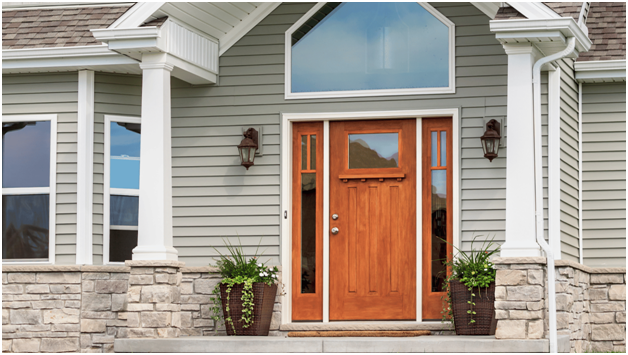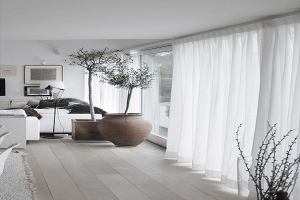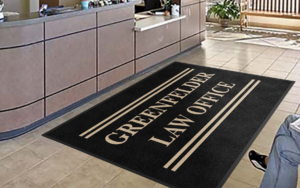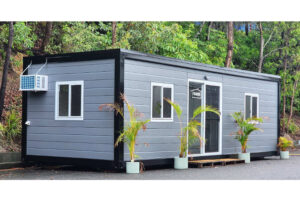
When it comes to upgrading or replacing the doors in your home, one of the most important decisions you’ll need to make is selecting the right material. The type of material you choose impacts not only the door’s appearance but also its durability, energy efficiency, maintenance needs, and overall cost. Among the most popular options are wood, steel, and fiberglass, each with its own unique advantages and drawbacks.
Understanding the strengths of these materials will help you make an informed decision and choose the best door for your home. Whether you’re simply replacing an old door or installing a new door during a renovation, selecting the right material can make a significant difference in both functionality and style.
1. Wood Doors: Timeless Beauty with a Classic Appeal
Wood has long been a favored material for doors due to its natural beauty and timeless appeal. Wooden doors are typically chosen for their aesthetic value, offering a warm, elegant, and customizable look that can complement almost any architectural style. Whether your home has a traditional or modern design, wood doors provide a high-end, luxurious feel.
Advantages of Wood Doors:
- Aesthetic Appeal: One of the biggest reasons homeowners choose wood is its appearance. The natural grain and texture of wood add character to any entrance, and wood doors can be stained, painted, or carved to suit your personal taste.
- Customization: Wood is highly versatile. You can choose from a variety of wood types, including oak, mahogany, cherry, and pine, as well as different stains or finishes. Wood doors can also be custom-made to fit unusual sizes or shapes, making them an ideal choice for unique entryways.
- Insulation: Solid wood doors offer decent insulation, helping to maintain the indoor temperature and potentially reducing energy bills.
Disadvantages of Wood Doors:
- High Maintenance: Despite its beauty, wood is more susceptible to wear and tear than other materials. It can warp, crack, or rot when exposed to moisture, making regular maintenance necessary. Homeowners need to periodically refinish or paint wood doors to keep them looking their best and to protect them from the elements.
- Cost: Wood doors tend to be more expensive than steel or fiberglass alternatives, particularly when made from high-quality or rare wood species.
- Durability: While wood doors are sturdy, they can be more prone to damage from impacts or weather-related conditions compared to steel or fiberglass.
2. Steel Doors: Strength and Security
Steel doors are an excellent option for homeowners looking for durability, security, and affordability. Often used for exterior doors, steel doors are constructed with an inner core of insulating foam or wood and an outer layer of steel. They provide a sleek, modern appearance and are particularly popular in areas that experience harsh weather conditions.
Advantages of Steel Doors:
- Security: Steel doors are one of the most secure options available. Their sturdy construction makes them difficult to break or force open, offering peace of mind for homeowners concerned about security.
- Durability: Steel doors are highly resistant to cracks, warping, or rotting, making them more durable than wood doors in extreme climates. They also hold up well against daily wear and tear, making them an ideal choice for high-traffic areas.
- Low Maintenance: Steel doors require very little maintenance. Unlike wood, steel doesn’t need to be refinished or repainted frequently, and it resists common issues like rust and dents when properly cared for.
- Energy Efficiency: Many steel doors come with insulated cores, making them highly energy-efficient. They can help keep your home warm in the winter and cool in the summer, contributing to lower energy costs.
Disadvantages of Steel Doors:
- Aesthetic Limitations: While steel doors can be painted in various colors, they don’t offer the same natural beauty or texture as wood. Some homeowners feel that steel lacks the warmth and character of other materials.
- Dents and Scratches: Though durable, steel can be susceptible to dents or scratches. If damaged, steel doors may require professional repair to restore their appearance, and rust can develop if the damage exposes the metal to moisture.
- Temperature Sensitivity: In extremely hot or cold weather, steel doors can transfer temperature, making them cold to the touch in winter and hot in summer.
3. Fiberglass Doors: The Best of Both Worlds
Fiberglass doors have gained popularity in recent years due to their combination of durability, energy efficiency, and design flexibility. They can be made to mimic the appearance of wood while offering greater resistance to the elements, making them an attractive choice for homeowners who want the beauty of wood without the maintenance.
Advantages of Fiberglass Doors:
- Durability: Fiberglass doors are highly resistant to warping, cracking, and rot. They perform well in harsh climates, including humid, rainy, or coastal areas, making them a great option for homes exposed to the elements.
- Low Maintenance: Unlike wood, fiberglass requires very little upkeep. These doors are designed to withstand daily wear and tear without the need for frequent painting or refinishing.
- Energy Efficiency: Fiberglass doors are known for their excellent insulation properties. Many fiberglass doors have insulated cores that help regulate indoor temperatures and reduce energy consumption.
- Aesthetic Flexibility: Fiberglass doors can be manufactured to resemble wood grain, offering the aesthetic appeal of wood without the associated maintenance. They come in a variety of finishes and colors to suit different home styles.
Disadvantages of Fiberglass Doors:
- Cost: Fiberglass doors tend to be more expensive than steel, though they are generally more affordable than high-end wood doors.
- Lower Security: While still durable, fiberglass doors may not provide the same level of security as steel doors, especially if a more robust level of protection is required.
Conclusion
Choosing the right door material for your home is a crucial decision that impacts not only the look and feel of your home but also its security, energy efficiency, and long-term value. Wood doors offer timeless beauty and customization but require ongoing maintenance. Steel doors provide unmatched security and durability but may lack aesthetic warmth. Fiberglass doors strike a balance between appearance and practicality, offering the look of wood with minimal upkeep.
When selecting a door material, consider your home’s specific needs, climate, and budget. A reliable home remodeling company can help guide you through the process, ensuring you choose the right door that enhances both your home’s functionality and its curb appeal.





